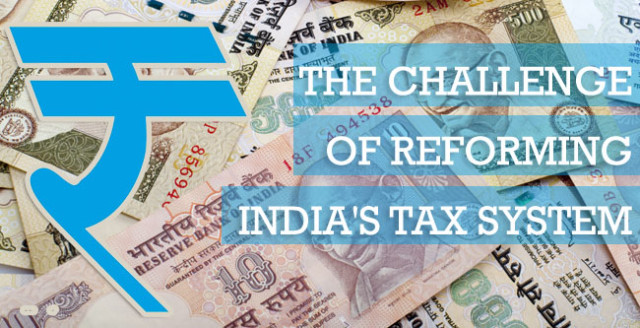We have spoken before on the inevitability of taxes, and the means by which an individual can invest his or her money in a manner that would lead to tax-free returns. But while none of us particularly enjoys paying taxes, it is important to realise that these are necessary. In a free-market economy, the role of the government is to provide ‘public goods’ – those that are either too uneconomical to produce by private enterprise, (health and education for the under-privileged) or too important (defence, law and order). The only way the government can finance the expenditure on these things is through taxation. But while people want access to public goods, they do not like being taxed.

The quandary faced by finance ministers since time immemorial has been beautifully summed up by Jean-Baptiste Colbert, who was Finance minister under Louis XIV of France in the latter half of the seventeenth century, when he said:
“The art of taxation consists in so plucking the goose as to obtain the largest amount of feathers with the least possible amount of hissing.”
Despite this seemingly-simple maxim, the fact remains that tax laws tend to be complex, perhaps because, instead of focussing on quietly raising revenue for the government, tax has become an instrument used by governments for achieving political, socio-economic and even so-called moral goals. (There is no better explanation for the prohibitive taxation on liquor in India).
Over a period of time, this means that taxation ends up mis-allocating resources, creates a bloated bureaucracy and undermines the objective of fairness. The Indian taxation system is certainly not exception in this regard.
Modern tax systems require taxes to be broad-based in terms of coverage and moderate as well as uniform when it comes to the rate of taxation. In India, both Direct and Indirect Taxes fall short of this ideal. The base is narrow, and the rates are high.
Indirect taxation
Indirect taxation is generally a tax on consumption of goods (Sales tax and service tax are the forms of Indirect tax we encounter most often). In India, the Constitution divides the responsibility for indirect taxes between States and the Central Government in such a way that it has not been possible thus far to levy a comprehensive, single tax on the consumption of goods and services.
Direct taxation
Direct tax, which comprises mainly of Income tax, does come directly under the purview of the central government and therefore, in theory at least, should be better administered. But we find that instead, a history of pandering to special interest groups, and using Income tax for political objectives has led to an artificially narrow tax base that targets primarily only white-collar government and organised sector employees. Far from optimum allocation of the responsibility of paying for public goods, or even the loftier ideal of ‘national development’, what has happened is an imposition of a burden to be carried by the hapless middle-class.
Compounding these evils is the mess that is the tax administration. In a recent review of the state of tax administration in India, the Tax Administration Reform Commission (TARC) has observed that
The Indian tax administration is at its nadir. A fundamental and deep reform is urgently called for. There is no time to lose if investment is to be revived and its full potential reached, and an eventual tax revolt through capital flight or other direct protests is to be averted.
The state of Indian tax administration is also reflected in the World Bank Report on Doing Business in India, 2015 which ranks India at a dismal 156 out of 189 countries in terms of ease of paying taxes. Tax offices are staffed with officials whose slavish adherence to procedure over logic and a perspective geared towards investigation and harassment rather than facilitation has meant that the only persons who see a Tax official in a positive light are parents looking for a suitable match for their sons and daughters – after all, it is a proverbial truth that any Tax official must have amassed considerable wealth from underhand dealings over the years.
In recent years, the UPA and now the NDA government have tried to implement reforms. That each opposed or defended the same proposals depending on which side of the Lok Sabha they sat is immaterial now. But both the Goods and Service Tax (GST) Bill and the Direct Tax Code (DTC) would be landmark reforms, if implemented. The ultimate objective of the GST reform is to replace multiple indirect taxes at the Centre and state levels by a single tax (GST), levied on a comprehensive base of all goods and services at a moderate tax rate. A vision of this reform is provided in the report of the 13th Finance Commission, which outlines the design of a flawless GST levied at a moderate tax rate of 12 per cent (combined Centre and states tax rates).
Unfortunately the States have been reluctant to support such a measure whole-heartedly and have proposed exclusions and increases that will only end up harming the country in the long run. Rates as high as 27% are being spoken of, which would effectively kill economic growth, not to mention sending inflation soaring. Some states have actually changed local tax laws in a manner intensely detrimental to the principles of uniformity and ease of collection.
So what is the road forward? Perhaps getting GST passed in the Upper House will break the deadlock and bring about the much-needed reforms. Certainly Direct Tax Reform, though it leaves agricultural income untouched, will also ease many of the problems being faced by the Indian tax-payer.
Until then, we can only hope for the elusive ideal.































